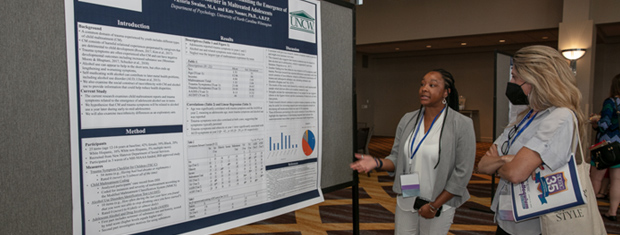




The APSAC Advisor is a peer reviewed quarterly news journal for professionals in the field of child abuse and neglect.
The APSAC Advisor provides succinct, data-based, practice-oriented articles that keep interdisciplinary professionals
informed of the latest developments in policy and practice the field of child maltreatment. It is designed to highlight
best practices in the field and publish original articles and current information about child maltreatment for professionals
from a variety of backgrounds including medicine, law, law enforcement, social work, child protective services, psychology,
public health and prevention in the U.S.
 If you wish to learn more about submitting an article to the Advisor, please click here.
If you wish to learn more about submitting an article to the Advisor, please click here.
This library contains Advisor issues dating back to the first issue in 1988. The most recent issue appears at the top.
Scroll down to select past issues by year and issue number. Once a publication appears in the box, you
can use the Enlarge button to open the document in a new window or tab (depending on how your browser is set up).
This will allow you to view the document with larger print.
To print a document, first use the Enlarge button to open the document in a new window or tab. Then use your browser's Print command.
To return here from a new tab, close the tab. To return from a new window, click your browser's Back button.
In the listing below, click on a year and issue number to see the articles in that publication.
2011 Number 4
President's Message: APSAC and the First Russian-American Child Welfare Forum
Recognizing the need to make a fresh start in relations between the United States and Russia, President Dmitri Medvedev and President Barack Obama created the U.S.-Russia Bilateral Presidential Commission in July 2009 to address shared challenges, explore opportunities for partnership in areas of mutual interest, and coordinate activities to solve joint concerns.
APSAC Presentations at the First Russian-American Child Welfare Forum
A civil society is a society that recognizes, supports, and is guided by fundamental and essential ethical principles of moral discourse. These principles are liberty, justice, human dignity, and a fourth, which I will explain shortly.
The field of child forensic interviewing draws upon accepted practices in the areas of question formation (Faller, 2007), knowledge of children’s language development (Walker, 1999), and the development of interview protocols such as the National Institutes of Child Health and Human Development (NICHD) and CornerHouse’s Rapport, Anatomy Identification, Touch Inquiry, Abuse, and Closure (RATAC) protocols (Brown & Lamb, 2009). Building upon these foundations, how can the interviewer’s question framework maximize children’s ability to report their experience?
Comparing the NICHD and RATAC Child Forensic Interview Approaches - Do the Differences Matter?
“It’s simple, but not easy. Ask more open-ended questions and fewer closed-ended questions.” This is how Tom Lyon (professor of Law and Psychology at the University of Southern California and an expert on child interviewing) describes the task of conducting a child forensic interview that maximizes reliability while minimizing suggestibility.
The purpose of Journal Highlights is to alert readers to current literature on child abuse. Selected articles from journals representing the variety of disciplines reflected in APSAC's membership are presented in the form of an annotated bibliography.
APSAC Advisor 23(4): Full Issue